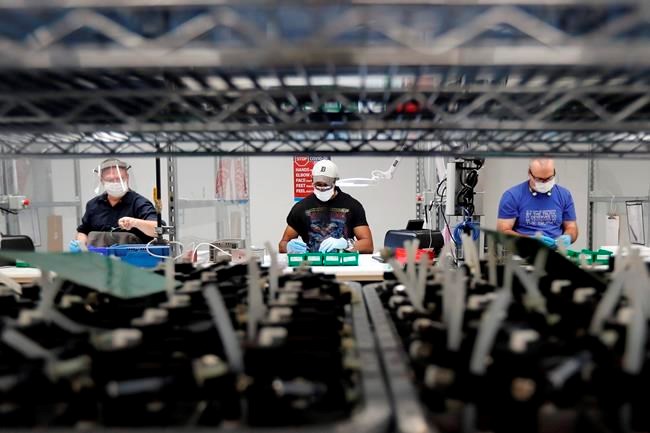WASHINGTON — U.S. industrial production increased 0.4% in November with manufacturing receiving a boost from a rebound in output at auto plants after three months of declines.
The Federal Reserve reported Tuesday that the November gain in industrial output followed an even stronger 0.9% increase in October. Even with the gains, industrial output is still about 5% below its level in February before the pandemic hit.
Manufacturing was up 0.8% in November, its seventh consecutive monthly gain, with last month's increase boosted by a rebound in auto production. Production of motor vehicles and parts rose 5.3%, the biggest monthly increase since a 31% surge in July. However, after that jump following spring lockdowns, auto production fell in August, September and October.
Output in the mining sector, which includes oil and gas production, rose 2.3% while utility output fell 4.3%, a decline that reflected unseasonably warm weather in November.
U.S. industry operated at 73.3% of capacity in November, still below the pre-pandemic rate of 76.9% in February.
“There are huge swaths of excess capacity throughout the U.S. economy that will make it difficult for firms to raise prices,” said Gus Faucher, chief economist at PNC Financial Services. “That in turn will keep inflation below the Federal Reserve's 2% objective for the next couple of years, allowing the central bank plenty of leeway to keep interest rates extremely low to support the ongoing economic recovery.”
The Fed, holding its last meeting of the year, was expected to announce Wednesday that it is keeping its policy rate at a record low level of 0% to 0.25% to help the economy recovery from the pandemic. Many economists do not look for the Fed to start raising rates until 2024 at the earliest.
Michael Pearce, senior U.S. economist at Capital Economics, forecast continued gains in production even as the country endures a new surge in virus cases.
“With firms starting to rebuild lean inventories over recent months, we suspect production with continue to rise even as consumption drops back in the face of new virus restrictions over the coming months,” he said.
Martin Crutsinger, The Associated Press



